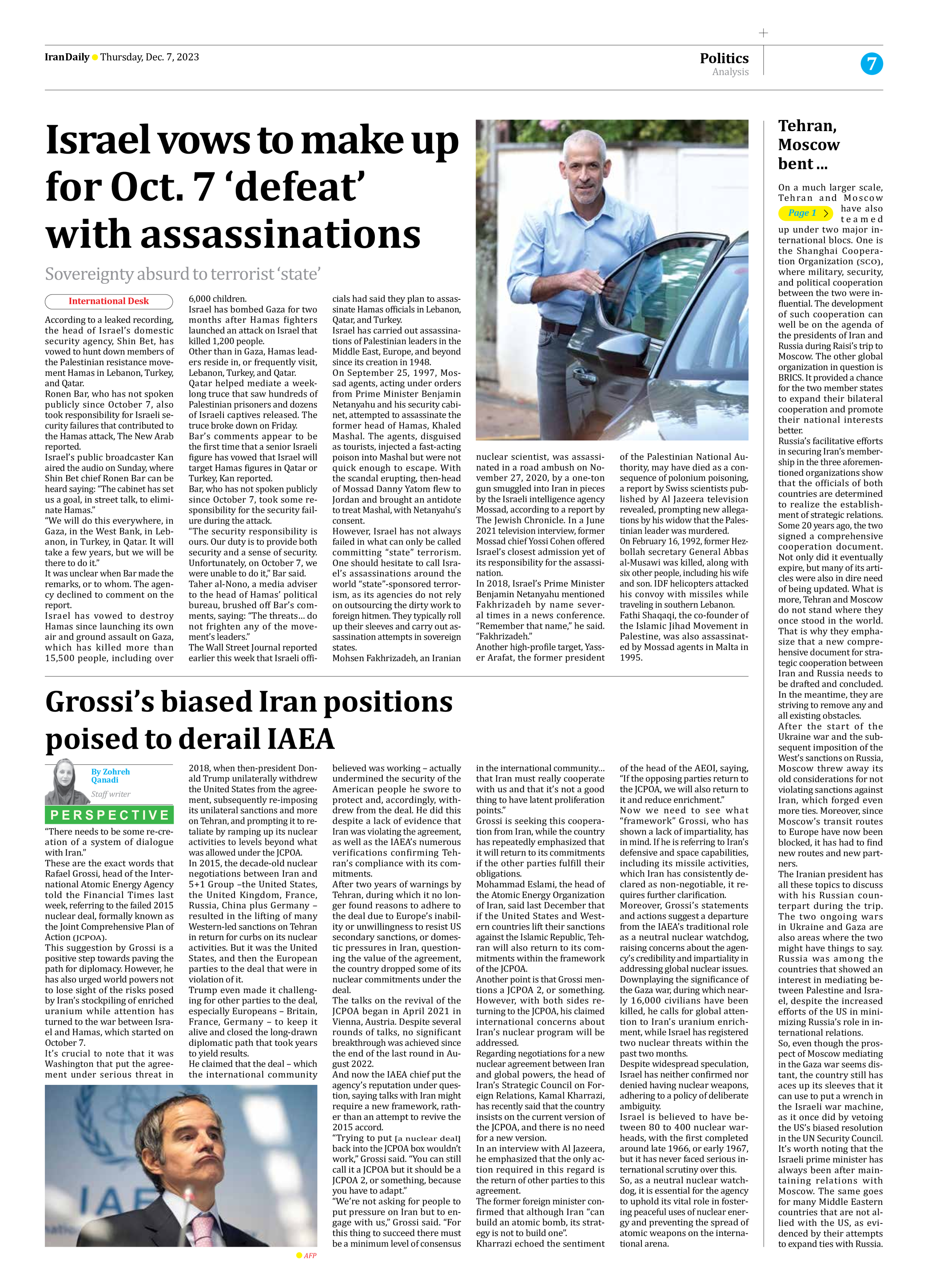
Copy in clipboard...
Tehran, Moscow bent ...
On a much larger scale, Tehran and Moscow have also teamed up under two major international blocs. One is the Shanghai Cooperation Organization (SCO), where military, security, and political cooperation between the two were influential. The development of such cooperation can well be on the agenda of the presidents of Iran and Russia during Raisi’s trip to Moscow. The other global organization in question is BRICS. It provided a chance for the two member states to expand their bilateral cooperation and promote their national interests better.
Russia’s facilitative efforts in securing Iran’s membership in the three aforementioned organizations show that the officials of both countries are determined to realize the establishment of strategic relations.
Some 20 years ago, the two signed a comprehensive cooperation document. Not only did it eventually expire, but many of its articles were also in dire need of being updated. What is more, Tehran and Moscow do not stand where they once stood in the world. That is why they emphasize that a new comprehensive document for strategic cooperation between Iran and Russia needs to be drafted and concluded. In the meantime, they are striving to remove any and all existing obstacles.
After the start of the Ukraine war and the subsequent imposition of the West’s sanctions on Russia, Moscow threw away its old considerations for not violating sanctions against Iran, which forged even more ties. Moreover, since Moscow’s transit routes to Europe have now been blocked, it has had to find new routes and new partners.
The Iranian president has all these topics to discuss with his Russian counterpart during the trip. The two ongoing wars in Ukraine and Gaza are also areas where the two might have things to say. Russia was among the countries that showed an interest in mediating between Palestine and Israel, despite the increased efforts of the US in minimizing Russia’s role in international relations.
So, even though the prospect of Moscow mediating in the Gaza war seems distant, the country still has aces up its sleeves that it can use to put a wrench in the Israeli war machine, as it once did by vetoing the US’s biased resolution in the UN Security Council.
It’s worth noting that the Israeli prime minister has always been after maintaining relations with Moscow. The same goes for many Middle Eastern countries that are not allied with the US, as evidenced by their attempts to expand ties with Russia.







